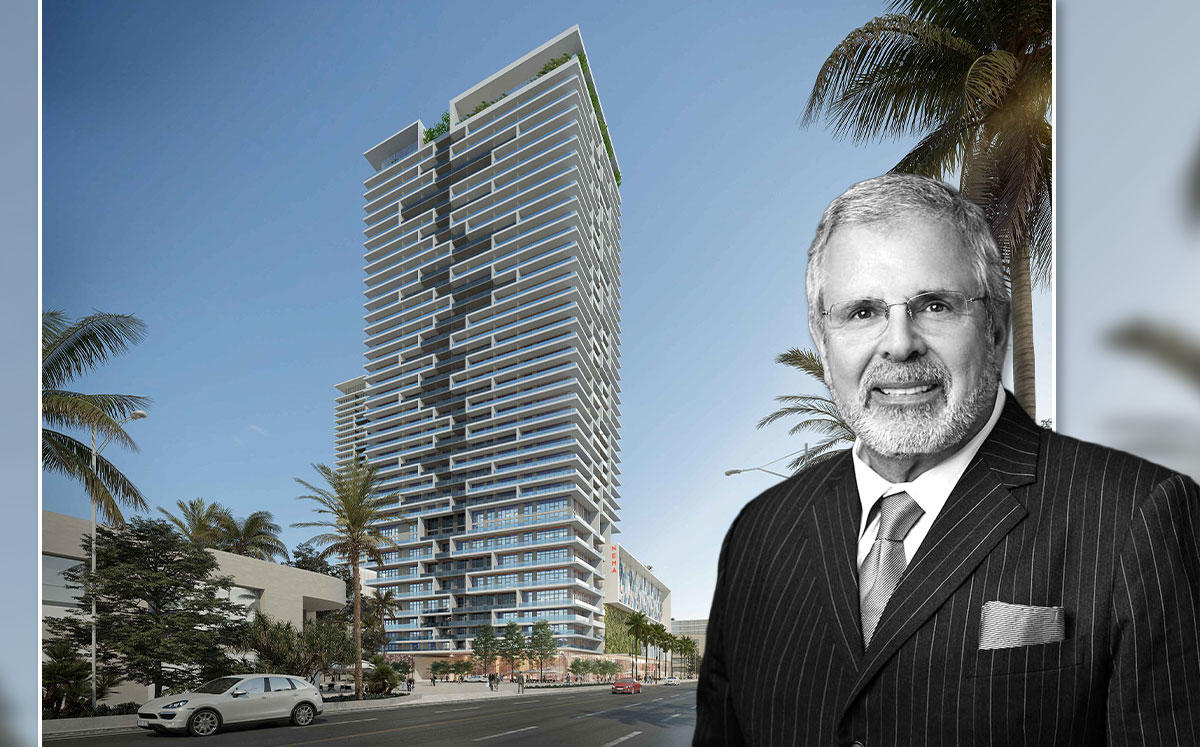A city of Miami board narrowly rejected Crescent Heights’ application to close 10-foot-wide alleyways for a future 3-acre development site in Edgewater.
Though rejected by the city’s Planning Zoning & Appeals Board during a virtual meeting held Wednesday evening, the decision to close the alleyways will ultimately be up to the Miami City Commission. The Crescent Heights closure application could be voted on by the commission as early as July 9.
Crescent Heights principals Russell Galbut, Sonny Kahn, and Bruce Menin want to build a pair of Nema-branded luxury towers on two city blocks between Biscayne Boulevard, Northeast Second Avenue, Northeast 29th and 30th streets. The project is slated to include a 37-story building with 49,000 square feet of retail, 43,000 square feet of office, 417 apartments and 668 parking spaces; and a 40-story skyscraper with 428 apartments, 704 parking spaces and a grocery store. (The Real Deal is a tenant at 3050 Biscayne Boulevard, a Crescent Heights building.)
But before that project can move forward, the developers need permission from the city to close down alleyways that transverse Crescent Heights’ property. Ethan Wasserman, a Greenberg Traurig attorney representing the Miami-based developer, said the alleyways are 100 years old, and unused by any city vehicles. City planning staff also recommended that the alleyways be fully-deeded back to the property owners.
But PZAB member Andres Althabe said the project should be delayed until the board, and the community at large, can understand the true impact Crescent Heights’ Nema project will have on the surrounding area.
“We are not just closing the alleys, instead we are just opening the door for the construction of a project that is almost the size of a SAP [special area plan]. That’s definitely going to affect the whole area and not necessarily for the better,” said Althabe, president of the Biscayne Neighborhood Association, an organization that represents residents living in downtown Miami, the Omni district and Edgewater.
Under the city’s Miami 21 zoning code, developers with more than nine acres of land can submit a special area plan, or SAP, application seeking massive zoning changes. Althabe said the two blocks making up the Nema project was just part of a nearly nine-acre territory assembled by Crescent Heights. That assemblage, Althabe pointed out, included property just north of the Nema site that the operators of Magic City Casino want to lease from Crescent Heights in order to build a jai-alai and poker room. The Related Group and billionaire Norman Braman are currently litigating to stop that jai-alai from being built.
Wasserman insisted that Crescent Heights wasn’t seeking an SAP, and that the application had nothing to do with a jai-alai. He said this hearing was only about closing alleyways, and that other matters of the proposed project, including traffic impact, will be handled at a later date.
But Althabe pushed to defer a decision until Sept. 2, allowing the developers to hold meetings with the community at large, complete a traffic study, and present their plans for the Nema project to the board. The deferral initially passed 5 to 4. Wasserman pleaded for an earlier date, insisting that the developers had hoped to move forward with the project by March, only to be delayed by Covid-19.
Planning and zoning board member Alex Dominguez ultimately made a motion to approve the alleyway closures. But by the time the vote took place, Dominguez was among those who voted against his own motion. Also voting against the alleyway closure: Aaron Zeigler, Anthony Parrish, Althabe and Garavaglia. Voting for the alleyway closures: Melody Torrens, Manuel Vadillo, Collins and Gersten.
